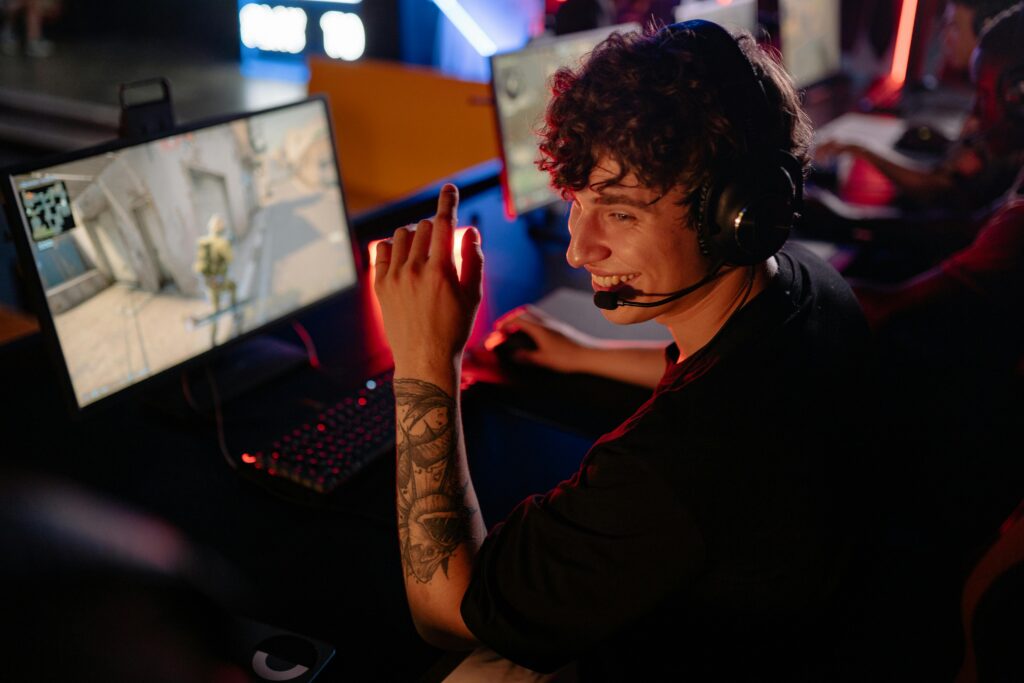Online games have become more than just a source of entertainment; they are now pivotal tools in various professional fields, including military training. The evolution of gaming technology has enabled the development of sophisticated military training simulations that offer realistic and immersive experiences for soldiers. This article explores the role of online games in military training simulations, highlighting their benefits, applications, and future potential.
The Integration of Online Games into Military Training
Historical Context: The use of simulations in military training is not new. Historically, militaries have used war games, both physical and theoretical, to prepare soldiers for combat scenarios. However, the advent of digital technology has significantly enhanced the realism and effectiveness of these simulations.
Modern Online Games: Today’s online games utilize advanced graphics, artificial intelligence (AI), and virtual reality (VR) to create highly realistic environments. These technologies are now being leveraged in military training to provide soldiers with immersive and interactive experiences that closely mimic real-life combat situations.
Benefits of Online Games in Military Training
- Realistic Combat Scenarios
Online games can simulate various combat scenarios that soldiers might encounter in the field. These simulations provide a safe environment where soldiers can practice and hone their skills without the risks associated with live training exercises.
Immersive Environments: VR and augmented reality (AR) technologies create immersive environments that enhance the realism of training exercises. Soldiers can experience the sights and sounds of a battlefield, helping them to better prepare for actual combat.
- Cost-Effective Training
Traditional military training exercises can be expensive, involving extensive resources, personnel, and equipment. Online game-based simulations offer a cost-effective alternative, reducing the need for physical resources while still providing comprehensive training.
Resource Efficiency: These simulations can be conducted virtually, allowing for the reuse of digital assets and reducing the logistical challenges associated with traditional training methods.
- Enhanced Learning and Retention
Interactive and engaging training methods, such as those offered by online games, have been shown to improve learning and retention. Soldiers are more likely to remember and apply what they have learned when training is interactive and enjoyable.
Feedback and Assessment: Online simulations can provide real-time feedback and performance assessments, helping soldiers to identify areas for improvement and track their progress over time.
Applications of Online Games in Military Training
- Tactical and Strategic Training
Online games are used to train soldiers in both tactical and strategic aspects of warfare. Tactical training focuses on individual and small-unit skills, such as marksmanship, navigation, and close-quarters combat. Strategic training, on the other hand, involves large-scale operations and decision-making processes.
Scenario-Based Training: Soldiers can participate in scenario-based training exercises that simulate specific missions or operations. These scenarios can be tailored to replicate real-world situations, providing relevant and practical training.
- Cognitive and Decision-Making Skills
Military operations require quick thinking and effective decision-making under pressure. Online games help to develop these cognitive skills by placing soldiers in high-stress environments where they must make rapid decisions.
AI-Driven Opponents: AI-driven opponents in online games can adapt to soldiers’ actions, providing a dynamic and challenging training environment that tests their decision-making abilities.
- Team Coordination and Communication
Effective communication and teamwork are crucial in military operations. Online multiplayer games provide a platform for soldiers to practice and improve their coordination and communication skills.
Multiplayer Simulations: These simulations enable soldiers to work together in virtual teams, developing their ability to coordinate movements, share information, and execute strategies cohesively.
Future Potential of Online Games in Military Training
Technological Advancements: As technology continues to advance, the potential applications of online games in military training will expand. Emerging technologies such as AI, machine learning, and VR/AR will further enhance the realism and effectiveness of training simulations.
Personalized Training: Future simulations may offer personalized training programs tailored to the specific needs and skill levels of individual soldiers. This customization can help to address the unique strengths and weaknesses of each soldier, improving overall training outcomes.
Global Collaboration: Online games can facilitate collaboration and training exercises with military personnel from different countries. This global approach can enhance interoperability and coordination in multinational operations.
Challenges and Considerations
- Security Concerns
The use of online games in military training raises security concerns, particularly regarding the protection of sensitive information. Ensuring that training simulations are secure and that data is protected is paramount.
Cybersecurity Measures: Robust cybersecurity measures must be implemented to safeguard training platforms and prevent unauthorized access.
- Realism vs. Accessibility
While realism is crucial for effective training, it is also important to ensure that simulations are accessible and user-friendly. Striking the right balance between realism and accessibility can be challenging.
User Experience: Developers must consider the user experience when designing training simulations, ensuring that they are intuitive and engaging for soldiers of all skill levels.
- Integration with Traditional Training
Online game-based simulations should complement, rather than replace, traditional training methods. Finding ways to integrate these simulations with live exercises and other training modalities is essential for a comprehensive training program.
Hybrid Training Models: A hybrid approach that combines online simulations with physical training exercises can provide a well-rounded training experience that leverages the strengths of both methods.
Conclusion
Online games have revolutionized military training by providing realistic, cost-effective, and engaging simulations that prepare soldiers for the complexities of modern warfare. The integration of advanced technologies such as VR, AI, and machine learning continues to enhance the effectiveness of these simulations, offering new opportunities for personalized and collaborative training. As the field of military training evolves, the role of online games will undoubtedly expand, contributing to the development of highly skilled and well-prepared soldiers.



